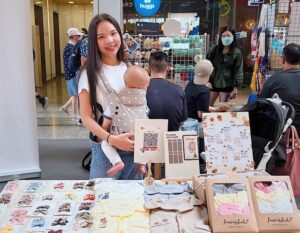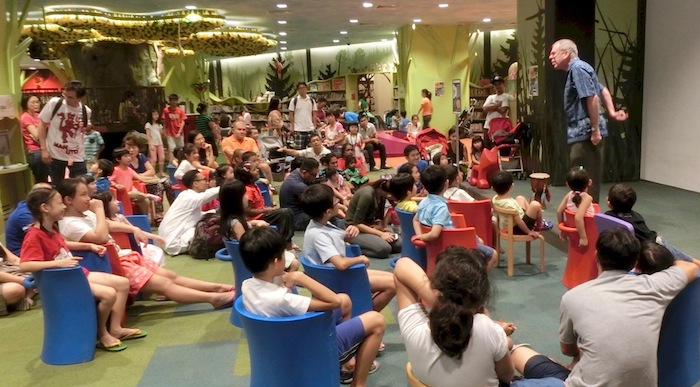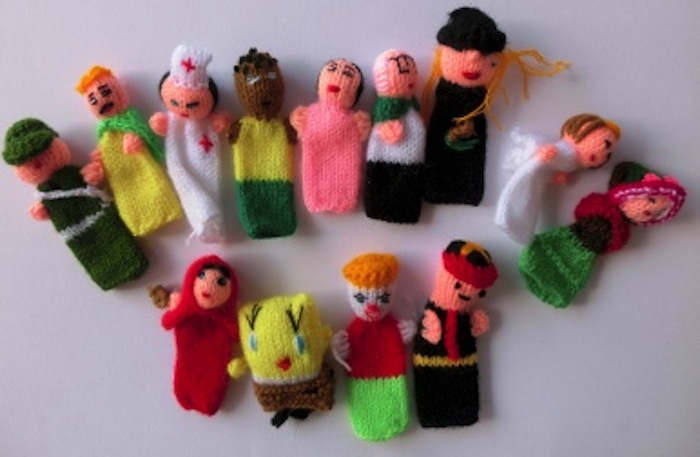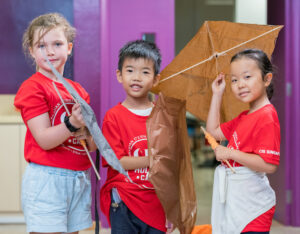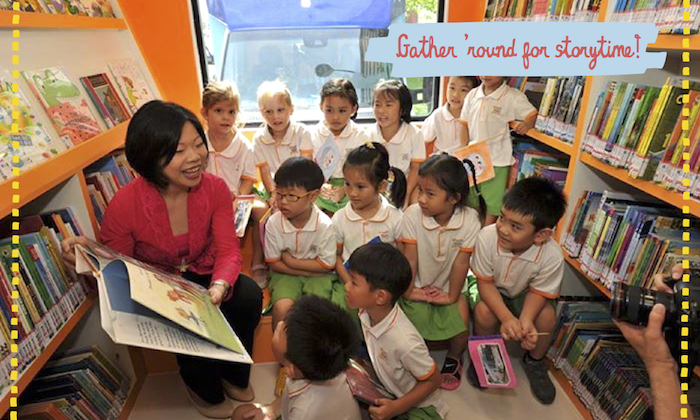




Who doesn’t love story time?! We’ve got everything you need to know to enjoy the FREE 398.2 Storytelling Festival Singapore coming up this month, mama!
Later this month, Sassy Mama is delighted to be sponsoring the inaugural 398.2 Storytelling Festival (that number is the official Dewey Decimal library code for folktales and fairytales, by the way). Featuring a slate of storytellers from around the region, and geared toward kiddos aged 4 and up (although we think you’ll be surprised how much adults will enjoy themselves, too!), the Festival is organised by Singaporean storyteller Roger Jenkins.
We sat down with Roger to learn more about what makes storytelling such a uniquely entertaining art form, and what you can expect from the festival on 28-29 November. Plus read on for details on a free finger puppet giveaway, mama!
How did you become a storyteller?
I have a background in theatre and trained in the UK as a drama teacher, with further experience in comedy improve and play directing. I spent many years as a drama teacher at UWCSEA, and in 1998 was asked by the Ministry of Education to run a storytelling workshop for teachers. A couple years later the National Book Council started a wonderful storytelling festival, and I’ve been involved ever since. I not only work with students of all ages at schools across Singapore, but have performed everywhere from political gatherings to prisons.
How does storytelling differ from a traditional play?
I discovered that storytelling gives you a much more direct connection with the audience than theatre; it’s all about eye contact, and you’re constantly reading your audience and finding ways to bring them back in. It’s not scripted (even if a particular story is probably about 90% the same from one telling to the next), and you’re telling it in your own words rather than memorizing lines off a script, so the effect can feel much more genuine.
In my experience the audience just gets sucked into a story! What’s truly marvelous though is how storytelling appeals to people of all ages.
Can you tell us more about this, why might adults enjoy a children’s storytelling more than a play or musical performance?
Stories have meaning and content that speak to everyone, regardless of age, even if they’re saying different things. For instance I was telling a story to children about a lion and a hunter, and as an aside clarified to the audience that this hunter wasn’t an American dentist [in reference to the infamous hunter who killed Cecil the Lion]. The children of course had no idea what I was talking about, but it got a big laugh from the adults!
In comparison, if you take your kids to a Hi-5 concert or Barney stage performance, the kids will love it, but it’s very much geared toward young children and you’re not likely to get much enjoyment out of it. Stories can kind of cross the ages.
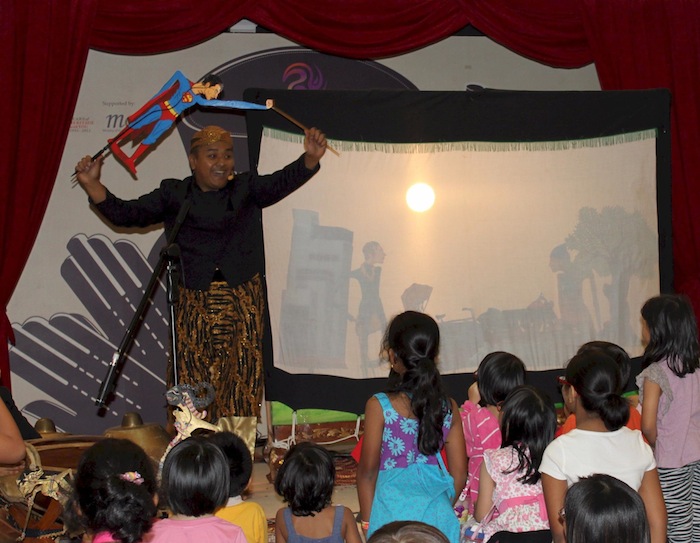

What’s the storytelling scene like in Singapore?
For a country of 5million, there are actually quite a lot of storytellers in Singapore. In the 1960s, for instance, there was a famous Cantonese storyteller who captivated audiences on the radio; the highest compliment one can receive from older Singaporeans is to be compared to him!
I think there are a number of factors at play: the country is quite diverse and densely populated. I can easily reach more than 400 schools in less than an hour’s drive. There are also very active community centres through the People’s Association that support storytelling. It doesn’t hurt that politicians – certainly the PAP – understand the importance of storytelling, particularly within a national context. I think SG50 was very much about shaping the national consciousness through storytelling.
Do your stories tend to have a moral or message?
When people ask me what the moral of one of my stories is, I try to deflect, because that implies that there’s only one right answers, whereas everyone engages in their own, valid way.
At the end of a telling I will ask students to reflect on what they took away from a story, and have been amazed at the range of responses I’ve received. For instance, with a story called “The Hunter and the Blind Man” I heard everything from “Be humble” to “Don’t judge a book by its cover” to “Do unto others as you’d have them do to you.” Again none of those were wrong!
I would say my guiding principle is that I try to use positive stories that reflect values education; principles like kindness, generosity, courage, integrity and self-sacrifice certainly run through many of my stories.
What’s the ideal age for storytelling? I have a 17-month-old daughter and she doesn’t seem quite able to sit and listen long enough. What tips do you have for parents telling stories at home?
[Laughs] I’ve actually worked with kids as young as 2 at EtonHouse, but obviously they have a very short attention span. In general, the younger you go, the more visual you become (via pictures, puppets, and other props). It’s also so important with little ones to make it interactive: make animal sounds, repeat actions over and over so they can understand and practice the motion. You also want to avoid sudden loud sounds, and I use much less scary voices for preschoolers than I would for the same character being told to primary schoolers.
Around age 4-5, I can bring kids up on stage, and teachers are amazed at how confident they become in from of an audience. I’d say around age 4 is when kids can sit and listen for a solid 30 minutes. At the storytelling festival we’ll have a dedicated room for kids aged 4-6, with special 30-minute sessions and very interactive, visual stories. See the full schedule for details!
What skills can children learn from storytelling?
Whatever age the audience, stories can be a really powerful teaching tool. I’ve already mentioned how compelling they are for conveying positive values, and it’s amazing to see how children are able to reflect and develop empathy.
In workshops, I’ll have kids retell stories in their own words, and they’ll often draw on their own experiences. An effective story is not about having a robust vocabulary, it’s what resonates and comes from the heat. The more of yourself you bring to a story, the more authentic it is and the more engaged your audience will be.
I’m also a great fan of storytelling in language learning, as it’s all about context. Children’s pick up vocabulary from non-verbal clues in storytelling that really help them understand better what’s going on (it doesn’t hurt that there’s a lot of repetition and choruses). I’d encourage parents to bring children who are learning Mandarin, Tamil or Malay to our “Mother Tongue” sessions at the festival (more info below!).
What are some highlights of the 398.2 Storytelling Festival that we can look forward to?
We’re holding the festival at two absolutely wonderful venues: The National Library Building on Saturday 28 November, and the National Museum of Singapore on Sunday 29 November. Each day we’ll have a main showcase stage where all of the festival’s performers will cycle through telling 1-2 stories, while we’ll also have specialty rooms with stories told in 45-minute sessions, including a room for Asian folktales, another for world folklore, a “Mother tongue” room with stories in Mandarin, Malay and Tamil, and even a room from local storyteller Ai Lin, who’s a tourguide and historian and whose stories focus on local history and conservation. And as aforementioned we’ll have a dedicated room for children 4-6, with 30-minute sessions told on the hour (children younger than 4 are welcome!).
What’s this we hear about finger puppets?
We will be giving away 300 Peruvian finger puppets for each day of the festival (so 600 in all) – they normally sell for $15 each, but children can get a package of 5 for FREE, along with handy suggestions for how to play with them and prompts to get parents involved and encouraging imaginative play.
There are separate steps to get finger puppets depending on which day you attend the festival!
To get puppets on November 28th (at NLB):
- Borrow 4 books between now and 28 November from the 2 section in your local library – that’s where you’ll find folktales and fairytales of course!
- Keep the loan receipt and present it on 28 November at the 2 Festival Redemption Booth (Level 5 of the NLB).
To get puppets on November 29th (at Museum of Singapore):
- Ask for a voucher from a 398.2 storyteller at one of their 14 storytelling sessions and workshops at the Singapore Writers Festival (happening this weekend – 7 and 8 November).
- Bring the voucher to the redemption counter on 29 November (Level 3, National Museum of Singapore).
Thanks Roger! For more info on the 398.2 Storytelling Festival, mama, visit the website or Facebook page.
All the details!
When: Saturday 28 November – Sunday 29 November, 11am – 5.30pm daily
Where: National Library Building, 100 Victoria Street, Singapore 188064 (Saturday) and Museum of Singapore, 93 Stamford Road, Singapore 178897 (Sunday)
How much: Free!






 View All
View All



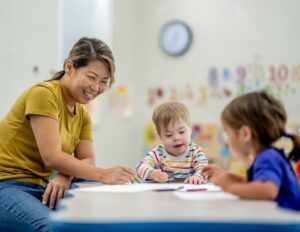

 View All
View All


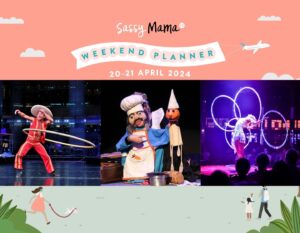

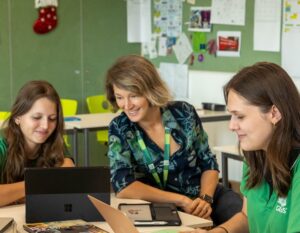


 View All
View All